
10 Best Open Source Low Code / No Code Development Platforms
3 June, 2024
19
19
0
Contributors
Hey everybody, as you know there are a lot of people who are huge fan of bubble.io no code Technology. However, there are a lot of cases where you'd want to build something on open-Source technology and still do it no code or low code. In which case you're probably not going to want to use bubble.io because bubble.io is not an open source platform has a lot of advantages, but it is not an open source platform. So in this article I’ll be showing you how you can use different platforms and these are the top 10 ones to enable and use open source technology for your company without having to use a closed Source platform like bubble.io let's jump into it.
Budibase: Build Internal Tools
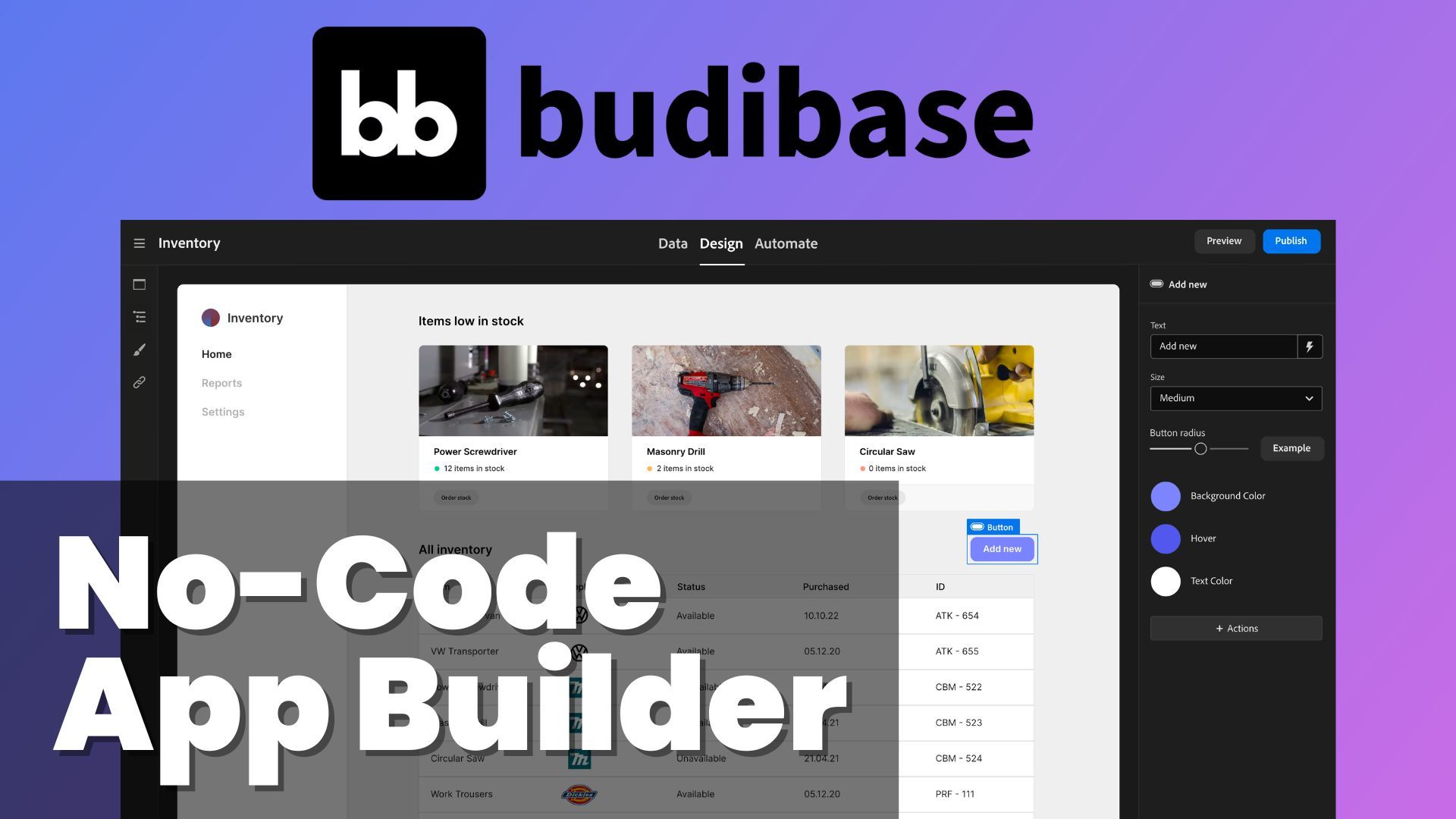
My first recommendation is a company called Budibase. You can save hundreds of hours building apps that make workflow that's their whole pitch, and essentially it is another no code platform they have over 20,000 GitHub stars, and it's trusted by over a 100,000 teams. Now I do like it because they do allow you to actually have self-hosting and include Kubernetes and Docker. It's also great if you want to connect to external databases and use different APIs. One really cool thing is you can actually create screens automatically and tables inside development. Which if you've used tools like bubble.io you know that creating tables can be complex and time-consuming, so having them be created automatically is a pretty good time-saving process.
One challenge to the platform though is it does require a little bit more development skill than bubble.io or any of these other no code platforms. If you want to get started using it, you can go to their pricing page and sign up for free without having to pay anything, and you get access to unlimited apps and workflows. They do give you premium features or Enterprise features if that sounds like you, which you can also use and have no user limit. Although there is a cost associated with each user that you add.
Convertigo: Low / No Code Platform
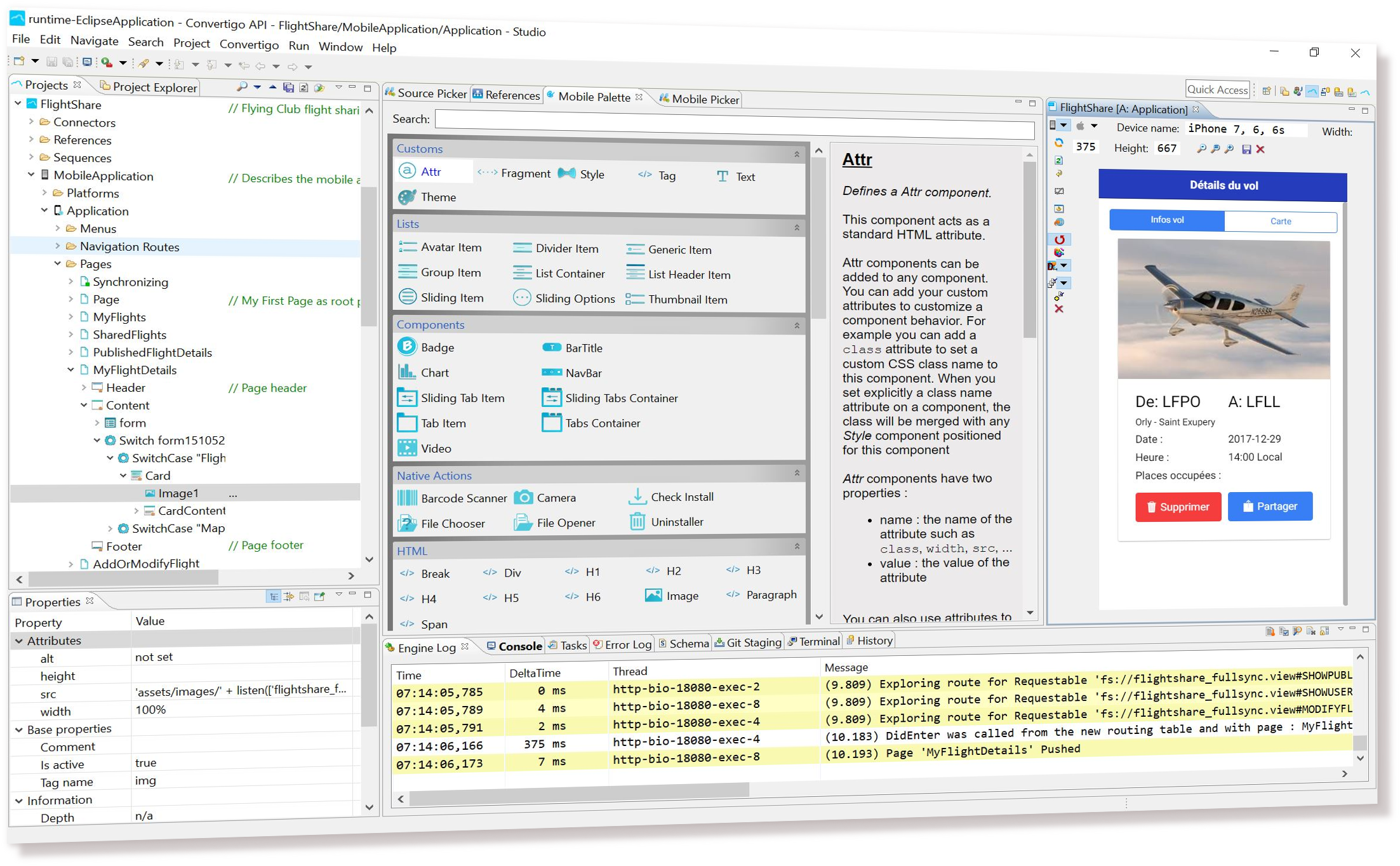
The next recommendation is a company called Convertigo, which is really catered more towards Enterprise digitalization. Which if you're reading this, one of the advantages if you're at a larger company or plan to be working with larger companies is that it could be run completely Enterprise without having to use a third party application that is closed source. For example, if you build something on bubble.io you may not have as much control over it as if you were to build something with an open source platform. The thing about Convertigo is that it's really good for things in the banking or Finance bases which tend to have a lot more compliance constraints, and that could be very useful if you're trying to build more complex apps with compliance concerns. One thing also that Convertigo does which bubble.io does not currently do is have on premise Solutions and if you're familiar with how software worked back in the day that was a really popular option, and it's still very popular for big teams nowadays is to have on premise software that you can run on your local servers.
Convertigo Pricing
If you want to get started using Convertigo you can just go to their pricing page, and you can sign up. You know the biggest thing with most of these apps that are open source, the cost is extremely low. You're not working with a platform that's on top of a no code platform like bubble.io so in that situation you know it is pretty cheap, it's €15 per month because you have to have a minimum of 10 users per month. I mean in general is it that expensive? No I mean at scale maybe it might add up but at the beginning it's not that expensive because remember these are users that are using the application and building on the application they're not people who are your end user right so if you have a thousand end users you're not going to be charged €15 per end User it's actually per person working on the platform.
Baserow: No Code Over-Source Database
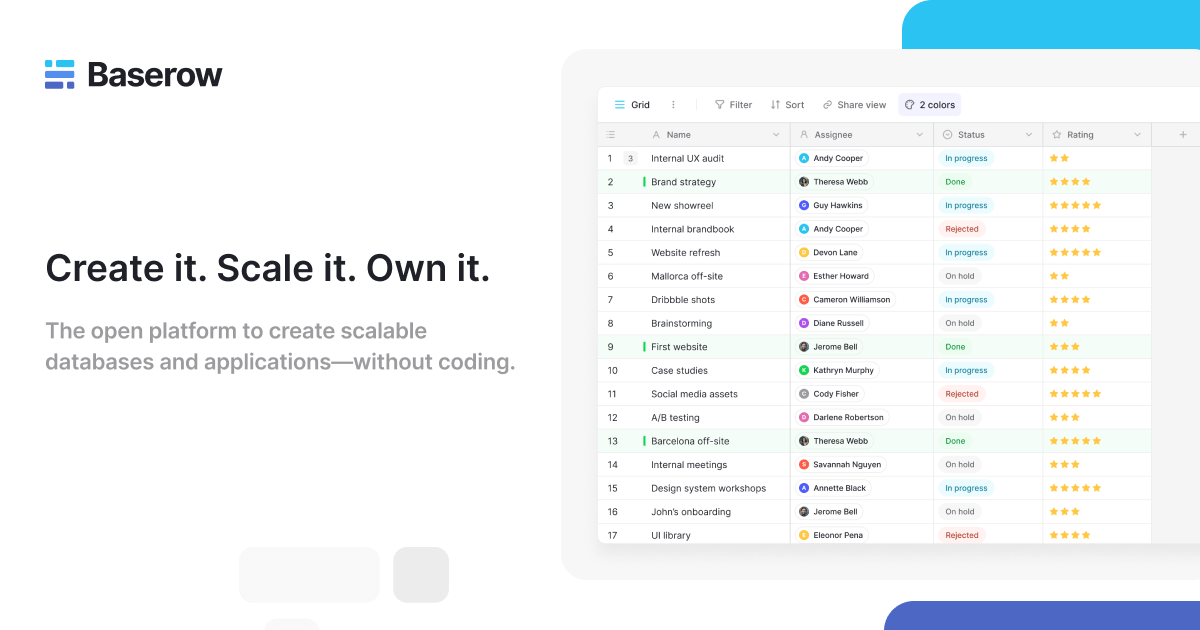
Now my next recommendation is a company called Baserow which is actually coming out as a pretty strong recommendation for open source technology. If you've used a company like Airtable before, it can be useful, but it can also be very expensive because it really adds up when you start adding a bunch of users to your organization. As somebody who has used Airtable for a while, I can definitely tell you that using a tool like Baserow if you want extra flexibility creativity extensions and more could be very useful. You get a lot of the same functionality as something like Airtable without having to pay exorbitant prices. One way that I'm seeing a lot of people use Baserow right now is for building Educational Tools or App Management tools, project management tools basic things like that you know for managing projects can be a great application of Baserow. One thing I would really think through before using something like Baserow is how big you want this application to be how extensive you want the database to be, this is extremely important. And if you need a lot of scalability, I wouldn't use something like Baserow if you want to get started.
Baserow Pricing
Using something like Baserow you can just go to their pricing page and sign up for free, you get free use of it. You don't get as many rows per workspace, you do get up to 3,000 rows per workspace and two gigabytes per workspace on their free version if you want to just get started. But again one thing a lot of these softwares are doing that are open source is having your own on premise instance the self-hosted version of the software which you can do on your own if you don't want to use the hosted version of Baserow which at the end of the day is very similar to something like bubble.io.
NocoBase: Self Hosted Open-Source
My next recommendation is a company called NocoBase which builds itself as a private no code platform. They say that instead of investing years of time and millions of dollars in research and deployment, you can just deploy NocoBase in a few minutes, and you'll have a private controllable and extremely scalable no code development platform. Here's the thing about no code right now is that there are just thousands of these different no code application builders popping up, NocoBase is trying to make its thing being very simple. If you think about Squarespace, it’s a very simple website development platform, so NocoBase is trying to be the Squarespace of no code applications built open source. You can build all your blocks your tables, your components very easily without having a lot of a development experience and b not having to put a lot of time into getting something built. This is why I'm mainly writing these articles because I want you to experience the different Platforms in a variety of situations. If you need something more complex you may not want to use a tool like NocoBase which really is trying to bank on simplicity. There's always trade-offs with these platforms, you just got to know which one each comes with and how to get around them.
StackStorm: Connect Apps, Services & Workflows

My next recommendation is a company called StackStorm which claims to connect all your apps services and workflows. It's used by some large enterprise companies it's free it's open source, and it's got a robust automation engine. I really like this workflow they have here which shows the triggers the rules the workflows the actions and all the results that can happen through their DevOps environment, and again it is completely 100% free because it is open source. They do not have a SaaS development layer, it's part of the Linux foundation in terms of projects. You can donate if you want to donate, but again the idea is that it is completely fully open source. The way I'm looking at StackStorm it's just it's the perfect no code open-Source tool that somebody who has a traditional development background can start using because it's looking at everything from what's called development operation, so DevOps is very popular term in practice inside development especially with big teams. It uses a lot of those same practices within the actual no code environment of this open source application, so if you're coming from that background, you might like using a tool like StackStorm right away. One thing it's also really well known for that is handling security operations. If you're dealing with a big website or a big application you're trying to build or something needs to be very secure, you can use something like StackStorm to create those advanced security parameters.
Basetool: Manage Data in One Place
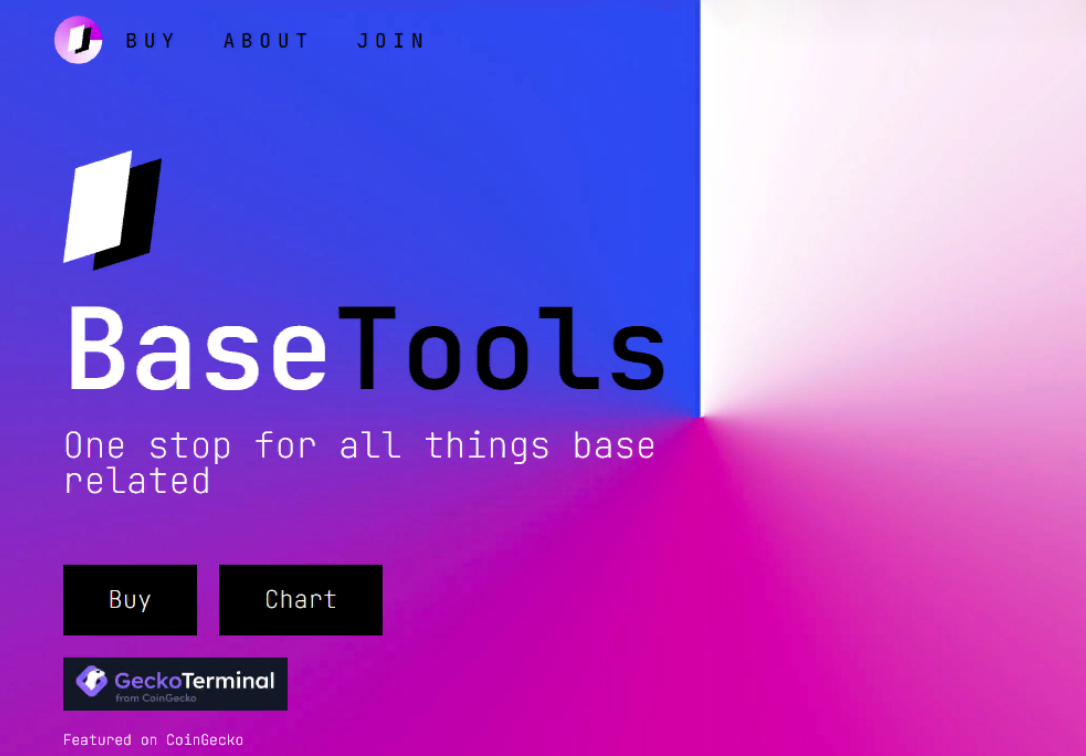
My next recommendation is a company called Basetool and like I've been saying as with all these companies each one is trying to find its own unique portion of the market. Basetool is trying to own all data management, so when you're dealing with complex databases, Basetool is claiming to be the go-to space for it. Now they are sunsetting it, so you do want to get it while you can, but eventually it will not be available. The benefit of this is if you want to have a more simplified database management infrastructure let's say you're using something currently like Firebase or some other kind of database management tool, and you want to make it simpler you could use Basetool to make that process simpler. Now again because they're shutting down you're only going to have a limited time to use this, but it has been extremely useful so far for the people, you might as well start using it for a few months if you are managing complex databases, and it's not so complex you need to keep it fully traditional custom code, but you want to have something a little bit more simple to start using.
Rowy: Low Code Backend

Now my next recommendation is a really cool company is called rowy.io, and they're claiming to be a low code backend. One thing I will say for a lot of these no code platforms is a lot of people have complained about the database infrastructure for these low code platforms. I am excited about a company like Rowy to work specifically with tools like Firebase in order to make database backend infrastructure for low code a lot easier. Even if you're using a tool like bubble.io, which I've talked about many times on this article, you can actually connect to a custom backend database to make everything easier when building applications. You could use bubble.io and a tool like rowy.io synergistically.
Rowy Pricing
You have 30 field types you could choose from to make managing your database a lot easier you have this easy customizable interface that can directly integrate with your code. If you're working with custom code you can immediately integrate with this and if you go to the pricing page on their website it's pretty affordable considering what they're giving. I know they're just starting off, and you also get a one-month free trial. If you want to go there signup, you get a month for free per seat $12 per month. One of the coolest things about Rowy is it feels like the most natural integration to your current Tech stack if you are actually a software developer looking to save time with low code. Again if you're a software developer, and you have a lot of years of experience hearing about low code no code tools might seem like a waste of time, so a lot of companies have thought of ways to make it easier to integrate with your current Tech stack Rowy is one of them.
GDevelop: Free Easy Gaming Engine
Now if you are super excited about this company it's called GDevelop mainly because if you do play a lot of video games, and if you are interested in video game development and Trends. What GDevelop does is it's a free and open-Source easy game engine, so you can create video games easily without the need to spend hundreds or thousands of hours building complex video games. These games are what are called hyper casual or indie games these are very laid-back easy games to build right now they're not really trying to build the next Battlefield or the next Starfield, but you can imagine that with the development of AI and all these different tools and interfaces that could go into this over the years it could get really, really exciting what you could do with a platform like this. A lot of people reading this probably aren't developing video games but hey maybe you can find a way to make a video game incorporate with your cool business or business software and Delight your customers more you never know everyone's always talking about gamification this could be a great way to gamify things.
PocketBase: Open-Source Backend
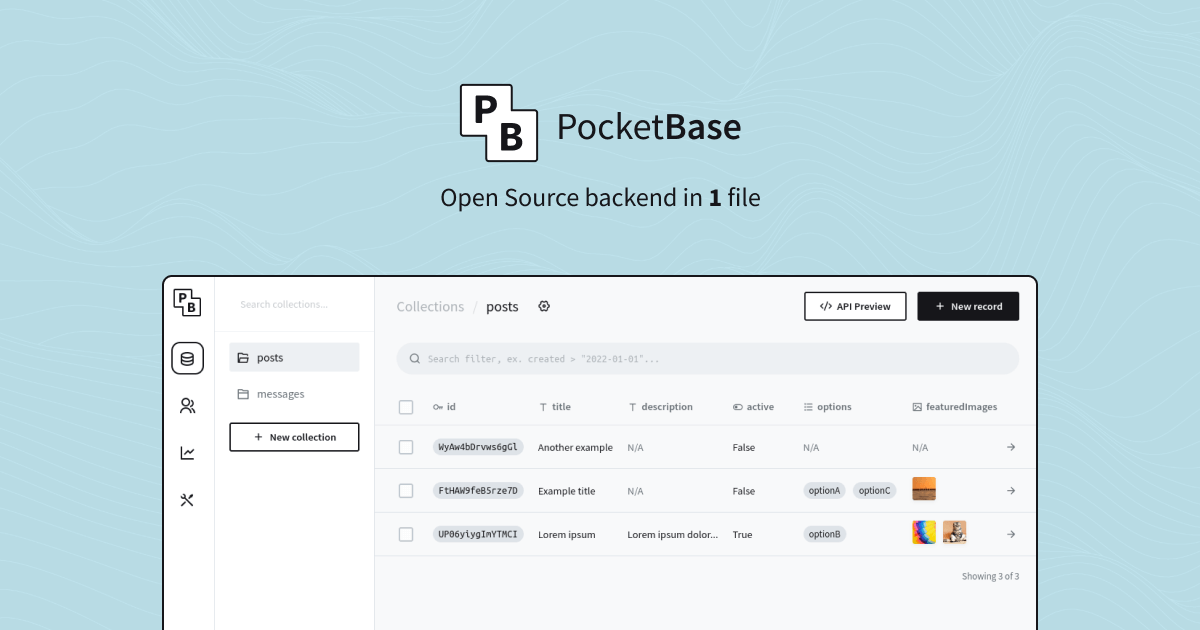
My next recommendation is a company called PocketBase which is claiming to be an open source backend for your next SaaS and mobile app in one file. You get the real-time database authentication file storage and admin dashboard all in one place. I really wanted to include this in here because I really liked what pocket base is able to do around self authentication and hosting. There is a limitation to what it's doing because you have to have your own self-hosting, but I think that any no code or low code application or open source platform that's dealing with authentication issues is a big deal and I do see a lot of of opportunity in a company like this. Authentication is something that can be a bit annoying in a platform like bubble.io where you have to have sometimes complex workarounds for certain authentication issues, and it can be a little bit of a hassle. Platforms like PocketBase can make that a lot easier for developers.
Directus: Backend as a Service

All right, so if you're ready this is my last recommendation for the best open-source no code low code Platforms in 2024. My final recommendation is a company called Directus which claims to go from database to application in 90 seconds. What's really cool is it basically is a headless CMS that can connect any SQL database into a no code platform very quickly. For those that are not necessarily full stack Developers, the simplest way to explain it I think is how the founder of Directus Wayne explains it on their website, which is that.
“Directus sits on top of your database without altering any of the data so if we had to introduce or combine new data for example our client's accounting database we can simply add it to Directus, and it's there for us to access browse and navigate”
I think tools like Directus will do what I really see as the biggest Trend in No Code Low Code Development Services in 2024 which is make it way more accessible for people who are traditional software developers to start using no code low code tools. Remember, this is just something that's sitting on top of your SQL database, and you don't need to do anything. It just starts generating everything for people to use and have that easy to use interface with the database at a moment's notice without having to go create boilerplate backend code, which is going to save people time. Companies like Directus are trying to find ways for developers to not have to do all the boring, mundane stuff and focus on the cool things that comes with software development. I hope you find this article informative I'm making more content like this all year long and Beyond if you have any questions or comments feel free to leave it below, and I will do my best to answer them. I'm going to be writing more content also on Tech news stories and all things business Tech related. I just love tech, I'm going to be really pumping out a lot of content for you this year. If you think somebody would enjoy reading these kinds of article, feel free to share it with them.
opensourcenocodedevelopmentplatforms
opensourcelowcodedevelopmentplatfomrs
